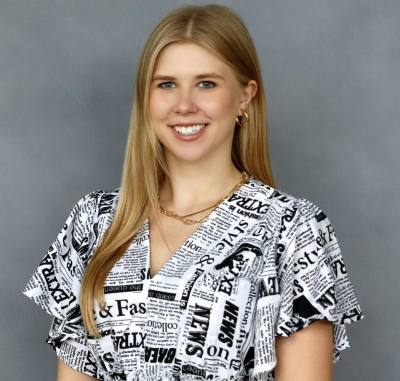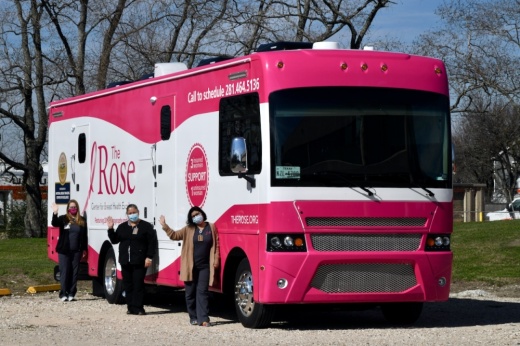Making mammograms mobile
In 2006, the organization took another step toward increasing accessibility to screening services by establishing The Rose Mobile Mammography Program.
The Mobile Mammography Program is an opportunity for employers, churches or similar groups to rent a bus to conduct regular mammogram screenings for women inside the coach.
The coaches travel to urban and rural communities, including The Woodlands area, and have clients ranging from clinics, schools, federally qualified health centers, food banks and nonprofits.
The mobile mammography coach can also be rented for events. According to The Rose, support comes from various events and organizations such as Memorial Hermann’s In the Pink of Health and The Woodforest Charitable Foundation.
The program was created to make access to regular screenings more convenient. According to the organization, the bus travels to over 41 counties in southeast Texas and is expected to provide screenings to about 8,000 patients this year.
Chief Administrative Officer Jessica Duckworth joined The Rose in 2014 as the director of imaging and mobile services. Duckworth elevated the Mobile Mammography Program and led The Rose to receive recognition as a Breast Imaging Center of Excellence in 2017, according to the organization.
“The mobile program came out of a need, just like everything else at The Rose,” Duckworth said. “About one-third of Texas counties lack mammography services, and Texas has the highest uninsured rate in the nation. So without the mobile program, there would be far too many women who would not have access to vital screening services.”
Expanding the service
Duckworth said the mobile program began in vans that traveled with mammogram technology that needed to be removed and brought inside a building. The program originally served seven counties. As of this year, the program at The Rose serves nearly six times that many counties.
The program now consists of three luxury mobile mammography coaches, and The Rose is expecting a fourth pink coach later this year. Duckworth said the buses have the same equipment, processes and services that patients would receive in The Rose’s brick-and-mortar clinics.
Duckworth said The Rose recently conducted a survey on patients of the mobile mammography program. Findings from the survey revealed that 65% of mobile patients would not have had their annual mammogram had The Rose not come to their community and provided the opportunity.
“By being able to bring [services] directly to them and them being able to have access to that care, we’re saving lives,” Duckworth said. “The sooner we are able to find breast cancer, the better the outcome they are going to receive. Early detection is the best prevention.”
The Rose Center for Breast Health Excellence
The Rose Southeast, 12700 N. Featherwood Drive, Ste. 260, Houston
The Rose Galleria, 6575 W. Loop 610, Ste. 275, Bellaire
281-484-4708 • www.therose.org
FAQs regarding breast cancer
According to the American Cancer Society, getting regular mammograms and finding breast cancer early is one of the most important strategies to prevent deaths from breast cancer.
What is a mammogram?
Mammograms are low-dose X-rays of the breast. Regular mammograms can help find breast cancer at an early stage, when treatment is most successful or cancer is more likely to be cured.
How often should women get mammograms?
- Women ages 40-44 could start screening with a mammogram every year.
- Women ages 45-54 should get mammograms every year.
- Women ages 55 and older may have a mammogram every other year.
- All women should practice regular breast self-exams.





